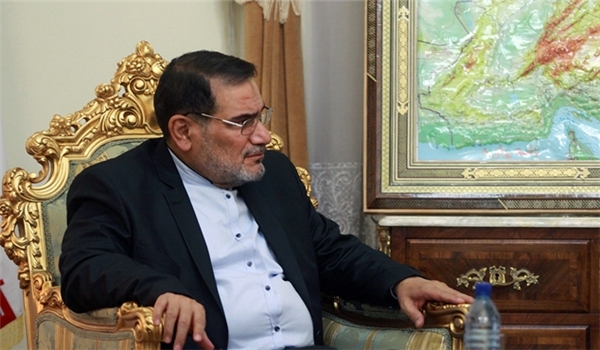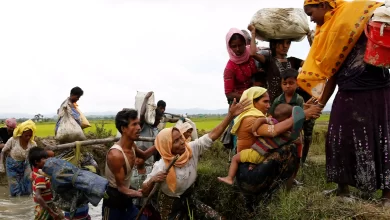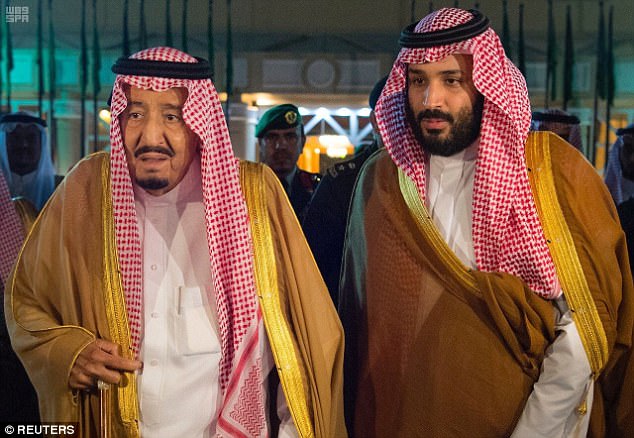Iran’s Top Security Official Warns West against Repercussions of Supporting Saudi Aggression

“Repeating the experience of Syria will result in instability in the region and increasing the threat of terrorist groups,” Shamkhani said.
He noted that the West’s indifference to to Iran’s warnings against assistance to the terrorists in Syria resulted in the creation of ISIL and its spread to other regions.
Shamkhani blasted the Saudi-led airstrikes on Yemen, and called for resolving the crisis through Iran’s four-step peace initiative which includes ceasefire and immediate halt to all foreign military attacks, dispatch of unimpeded urgent humanitarian and medical aid, resumption of national dialogue and establishment of an inclusive national unity government.
He underlined Iran’s firm will to confront wave of terrorism in the region, and said, “Despite unrealistic allegations and double-standards of some countries that claim support for fight against terrorism, Iran has paid the highest price for fighting terrorism on its path to create sustainable security in the region.”
Shamkhani pointed to the lack of the needed grounds for political and social participation in some Arab countries and suppression of the Youth in those countries as main causes of radicalism and terrorism, and said, “Without taking serious measures to uproot terrorism no one can be hopeful about curbing this dangerous movement.”
The Australian foreign minister, for her part, underlined Iran’s constructive role in fighting terrorist and extremist groups, and voiced concern over the negative consequences of the spillover of terrorism to other countries.
“The fact that refugees and citizens of the western countries join the terrorist groups is indicative of the spread of instability to these countries,” Isabel Bishop said.
The Australian foreign minister also underlined the need for settling the regional issues on the basis of dialogue and political solutions.
Earlier this week, Shamkhani warned that forming coalitions to wage military strikes against different states and double-standard policies of certain countries are the cause of spreading terrorism and extremism in the world.
Addressing the 10th security meeting of the Shanghai Cooperation Organization (SCO), Shamkhani blasted the double-standard approaches of certain countries towards identical crises in Yemen and Ukraine as well as Syria and Bahrain.
Stressing that complying with the demands of the nations is the solution to the current problems in these countries, he said, “The military coalitions formed to confront ISIL and suppress the Yemeni people have imposed war on the region, while the performance of both coalitions has led to increased instability, insecurity and crisis in the region and the world.”
Shamkhani underscored the necessity for the adoption of effective mechanisms to cut the terrorists’ financial resources and end intelligence, operational and military supports to them, and said exchange of intelligence among countries and planning flexible and efficient mechanisms for the implementation of preventative plans against terrorism is necessary.
Earlier today, Iranian Foreign Minister Mohammad Javad Zarif underlined that Tehran and Canberra share concerns about the spread of terrorism and extremism in the region.
“Today Australian Foreign Minister (Julie Isabel Bishop) and I talked about different bilateral and regional issues, including our common concerns about extremism and terrorism in the region,” Zarif said, addressing a joint press conference with his Australian counterpart in Tehran on Saturday.
“We also discussed how to confront the very dangerous phenomenon of ISIL in the region and Mrs. Bishop’s concern about the presence of westerners and Australians among ISIL ranks as well as the need for coordination, consultation and even cooperation in different fields for confronting this phenomenon …,” the Iranian foreign minister added.
Zarif noted that the two sides had also the opportunity to discuss bilateral ties and the need for increasing bilateral interactions in different areas.
Asked about Iran’s role in helping the Iraqi government in its fight against the ISIL terrorists, the Iranian foreign minister reiterated that anything that Iran does in Iraq is in coordination and cooperation with the Iraqi government.
“We should not adopt a selective approach while providing international support for the Iraqi government in its fight against extremism and terrorism and the political issues should not be involved; no financial or tactical support should take place either and this (anti-terrorism) fighting should be in coordination with the Iraqi government and respecting the government’s decisions,” Zarif said.
The Iranian foreign minister reiterated that airstrikes against the ISIL positions are not enough, and said, “We need a huge campaign to resolve the problem of extremism and terrorism, any move against the civilian population is not acceptable to us and the Iraqi government, and we have relayed this message to different Iraqi groups; we hope that the crimes and brutalities by ISIL will come to an end.”




